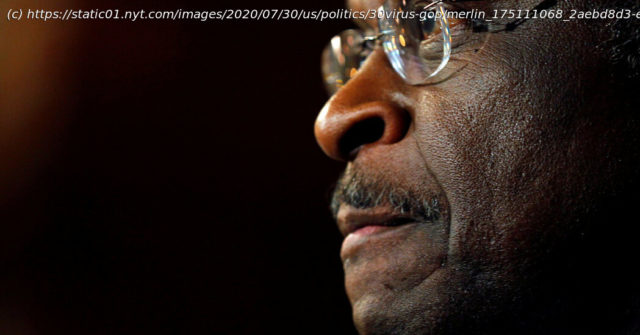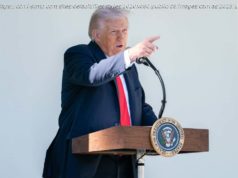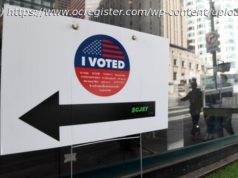His publicly dismissive attitude about the pandemic reflected the hands-off inconsistency of many party leaders.
The death on Thursday of Herman Cain, attributed to the coronavirus, has confronted President Trump and other Republicans with the reality of the pandemic as it hit closer to home than ever before, claiming a prominent ally of Mr. Trump, one whose frequently dismissive attitude about health precautions reflected the hands-off inconsistency of party leaders.
Mr. Cain, a former business executive and candidate for the Republican presidential nomination in 2012, had an irreverent, confrontational style that mirrored the president’s own brand of contrarian politics. In his more recent role as a public face for the president’s re-election campaign, he became an emblem of Trump-supporting, mask-defiant science skeptics, openly if not aggressively disdainful of public health officials who warned Americans to avoid large crowds, cover their faces and do as much as possible to limit contact with others.
His view was shared by many conservatives, who have applied a hard-nosed, culture war mentality to the virus, the most serious public health crisis in a century.
Mr. Trump wrote in praise of Mr. Cain on Twitter on Thursday, calling him “a Powerful Voice of Freedom and all that is good.”
But Mr. Cain’s death showed how ill-suited that mind-set is to the country’s current predicament. More than 150,000 Americans have died in a pandemic that is ravaging parts of the country where conservative leaders long resisted taking steps that have slowed the virus elsewhere, such as mask mandates and stay-at-home orders.
Those include places like Tulsa, Okla., where Mr. Cain attended a Trump campaign rally in June and showed his disregard for safety precautions on social media shortly before receiving a diagnosis for the virus.
With a uniformity that has defied rising death tolls in their own backyards, Republicans at the federal, state and local levels have adopted a similar tone of skepticism and defiance, rejecting the advice of public health officials and deferring instead to principles they said were equally important: conservative values of economic freedom and personal liberty.
From Arizona to Texas, as infection rates soared and hospital beds filled up, Republican governors stood in the way of local governments that wanted to do more. They overruled city mask mandates, arguing that it amounted to a form of government overreach. They said that requiring businesses to close or limit their capacity would strangle the economy and save few lives. They accused the news media and political opponents of exaggerating the risks to hurt the president’s chances for re-election.
Домой
United States
USA — Political Will Herman Cain’s Death Change Republican Views on the Virus and Masks?






